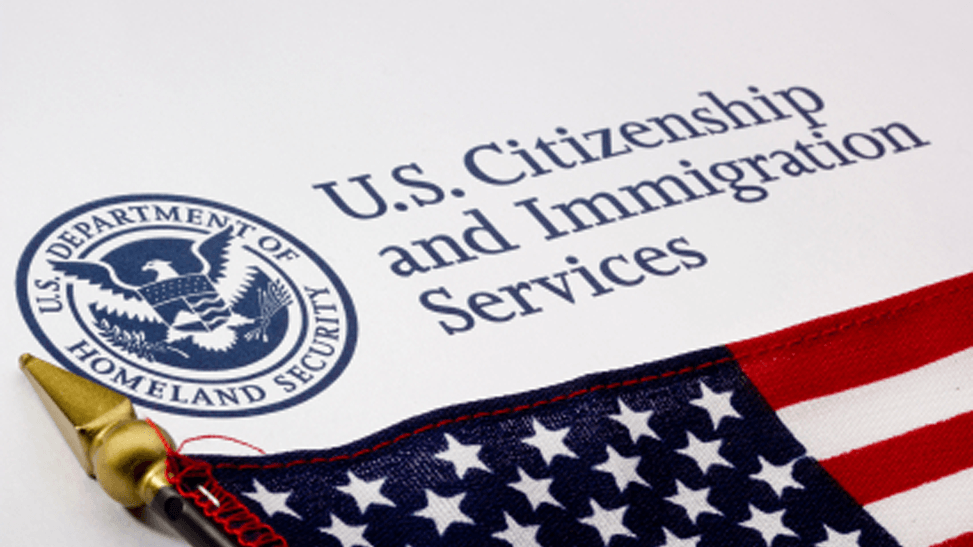La France étend la validité des visas E-1 et E-2 à 48 mois
John Montesanti • November 22, 2023
Click here to read this article in English
Le Département d'État a récemment annoncé une bonne nouvelle pour les citoyens français désireux d'investir aux États-Unis. L'ambassade et le consulat des États-Unis en France ont indiqué sur leur site web que:
"À compter du 16 novembre 2023, les visas Treaty Trader (E-1) et Treaty Investor (E-2) pour les ressortissants français seront
délivrés pour une durée de 48 mois, soit une augmentation par rapport à la validité précédente de 25 mois. Des frais de réciprocité de 58 dollars par visa approuvé seront facturés au moment de l'entretien.
Il s'agit d'une excellente nouvelle pour les investisseurs, car la durée de validité d'un visa français de négociant et d'investisseur a presque doublé, passant de 25 à 48 mois.
Si vous êtes un entrepreneur français et que vous envisagez d'obtenir le visa E-2, ou si vous avez une entreprise existante qui commerce avec les États-Unis et que vous envisagez d'obtenir le visa E-1, n'hésitez pas à contacter les avocats du cabinet Santos Lloyd Law Firm pour obtenir des conseils sur la façon de tirer le meilleur parti de ces changements récents et de vous lancer avec confiance dans votre projet d'entreprise aux États-Unis. Le chemin de la réussite peut être semé d'embûches, mais avec le soutien juridique adéquat, vos rêves d'entreprise peuvent devenir réalité dans le paysage commercial dynamique et diversifié des États-Unis.
Ce blog n'est pas destiné à fournir des conseils juridiques et rien ici ne doit être interprété comme établissant une relation avocat-client. Veuillez prendre rendez-vous avec un avocat spécialisé en droit de l'immigration avant d'agir sur la base de toute information lue ici.
John Montesanti
Similar Posts

By Shirin Navabi
•
February 13, 2025
The E-2 Visa is a non-immigrant visa that allows foreign investors from treaty countries to live and work in the United States by starting or purchasing a business. Unlike other visa categories, it does not require a fixed minimum investment amount. Instead, applicants must demonstrate that their investment is substantial and sufficient to ensure the success of their business. The visa is renewable indefinitely as long as the business remains active and meets the necessary criteria, making it an attractive option for entrepreneurs seeking long-term opportunities in the U.S. One of its key advantages is flexibility. Investors can establish a new business, acquire an existing one, or enter into franchise opportunities. Additionally, spouses and children under 21 can accompany the primary applicant, with spouses eligible to apply for work authorization. This makes the E-2 Visa a practical option for business-minded individuals looking to establish themselves in the U.S. market. While the E-2 Visa itself has remained a stable option, shifts in U.S. immigration policies have influenced the application process and overall investor experience. Understanding these changes is essential for anyone considering this pathway. Policy Shifts and the E-2 Visa: Lessons from the Past During the first Trump administration (2017–2021), U.S. immigration policies became more restrictive across multiple visa categories. Although the E-2 program was not directly limited, broader changes had an impact. The "Buy American, Hire American" Executive Order, signed in 2017, led to heightened scrutiny of visa applications, requiring investors to provide stronger evidence that their business would create jobs and contribute to the U.S. economy. This resulted in an increase in Requests for Evidence (RFEs) and denials for those unable to meet these expectations. Another significant change was the suspension of the Interview Waiver Program, which meant all E-2 applicants, including renewals, had to attend in-person interviews at U.S. embassies. This extended processing times and increased scrutiny of applications. Additionally, visa reciprocity agreements were reviewed and adjusted, impacting validity periods and costs for certain countries. For instance, Iranian citizens were deemed ineligible for the E-2 Visa due to the termination of the treaty. These adjustments significantly affected investors from impacted nations, increasing their costs and renewal frequency. Despite these policy shifts, the approval rate for E-2 visas remained relatively stable. According to data from the U.S. Department of State, there were over 43,000 approvals in 2019, reflecting the program’s continued viability. Even in 2020, when the COVID-19 pandemic caused global disruptions, approval numbers remained significant. These figures highlight that while the process became more rigorous, well-prepared investors continued to secure visas by demonstrating strong business plans, substantial investments, and clear economic contributions. What to Expect Moving Forward As the new Trump administration takes shape, further immigration policy changes are likely. While it is too soon to predict the exact impact on the E-2 Visa, past trends suggest increased scrutiny. However, the program itself has remained intact across multiple administrations, reinforcing its reliability for foreign entrepreneurs. Those considering this visa should stay informed and ensure their applications meet evolving requirements. A well-prepared investment strategy, clear documentation, and a defined job creation plan can make a significant difference in navigating any potential policy shifts. Why the E-2 Visa Remains a Strong Choice The E-2 Visa continues to be a resilient and valuable option for foreign entrepreneurs. Even during periods of policy change, approval rates have remained strong for investors with well-structured applications. The ability to renew indefinitely, combined with its flexibility in investment size and business type, makes it one of the most attractive pathways for international investors. With the right preparation, investors can confidently pursue the E-2 Visa, knowing that history has shown its stability even amid shifting political landscapes. By staying ahead of policy changes and ensuring a solid business strategy, entrepreneurs can take advantage of the opportunities the U.S. market has to offer. If you are ready to take the next step toward launching your business in the U.S., you can contact our office for expert guidance and personalized assistance with your application.

By John Montesanti
•
August 10, 2023
The E-2 visa, a valuable pathway for foreign investors seeking to establish or operate a business in the United States. As experienced immigration attorneys, we are here to provide insights and guidance on navigating the E-2 visa process. The E-2 visa is designed to promote foreign investment and enhance economic growth in the United States. It offers a range of benefits for investors looking to reside and work in the country. One of the primary advantages of the E-2 visa is the ability to bring immediate family members, including spouses and children, to the U.S. to live and study. This visa also provides flexibility in choosing business ventures, allowing investors to pursue their entrepreneurial ambitions in a wide variety of industries. To be eligible for an E-2 visa, foreign investors must meet certain criteria. First, they must be a national of a country that has a treaty of commerce and navigation with the United States that includes the E-2 provision. Additionally, they must make a substantial investment in a bona fide U.S. enterprise and demonstrate their intent to develop and direct the business. There is no specific minimum investment amount required for the E-2 visa, but the investment must be proportionate to the total cost of the business. Furthermore, the investment must be at risk and capable of generating income and job opportunities. When applying for an E-2 visa, thorough preparation is key. Investors should gather the necessary documentation, including financial records, business plans, and evidence of the viability and credibility of the enterprise. The application process involves submitting these documents to the U.S. Citizenship and Immigration Services (USCIS) or at a U.S. embassy or consulate in their home country where there will also be a visa interview. Navigating the E-2 visa process can be complex, and there are potential challenges that investors may face. One common challenge is demonstrating that the business is not marginal, meaning that it has the capacity to generate significant income and provide job opportunities. Another important requirement is showing that the investment is at risk, indicating that the investor's capital is committed and subject to potential gain or loss. Additionally, there may be treaty interpretation issues that require careful analysis and expertise. Given the complexities of the E-2 visa process, seeking professional legal guidance is crucial. An experienced immigration attorney can assess an investor's eligibility, help strategize the investment plan, and navigate potential challenges. We can provide personalized guidance, ensuring that all necessary documentation is in order and that the application is strong and compelling and that you are prepared for your consular interview. If you are interested in learning more about the E-2 visa contact our office. We look forward to working with you.

By Kyle Huffman
•
July 28, 2022
In years past, spouses of certain E and L visa categories were required to apply for and receive an Employment Authorization Document in order to work in the United States. However, as the result of a settlement reached by USCIS in the class action lawsuit Shergill v. Mayorkas on November 10, 2021, USCIS now considers E and L dependent spouses to be authorized for employment incident to their status.

By Juliana LaMendola
•
March 20, 2025
All people living in the United States, regardless of immigration status, have certain U.S. constitutional rights. If Immigration and Customs Enforcement (ICE) officers come to your workplace, they must have either (1) a valid search warrant, or (2) consent from your employer to enter non-public areas. Non-public areas could include: staff break rooms, server rooms, mechanical rooms, HR department offices, private meeting rooms, etc. However, ICE can enter public areas of your workplace (lobby, reception area, parking lot etc.) without a warrant or consent from your employer. If you encounter ICE at your place of employment, it is important to stay calm . If an officer stops you, you may ask if you are free to leave. If they say yes, walk away calmly. If they say no, stay where you are and do not attempt to leave. You have the right to remain silent. You do not have to speak to ICE, answer any questions, or show any documents . If asked about your place of birth, how you entered the United States, or your immigration status, you may refuse to answer or remain silent. If you choose to remain silent, say it out loud: “I choose to remain silent.” If officers ask you to stand in a group based on your immigration status, you do not have to move. Be prepared to assert your rights by downloading, printing, and carrying a "red card" (available at https://www.ilrc.org/red-cards-tarjetas-rojas ) that states you do not wish to speak, answer questions, or sign documents. You are not required to show immigration documents . You may refuse to show identity documents that reveal your nationality or citizenship. However, never show false documents or provide false information. If you are detained or taken into custody, you have the right to contact a lawyer immediately . Even if you do not have a lawyer, you can tell immigration officers, “I want to speak to a lawyer.” If you have a lawyer, you have the right to speak to them and, if possible, provide proof of this relationship (such as a signed Form G-28) to an officer. If you do not have a lawyer, ask for a list of pro bono (free) or l ow bono (low-cost) lawyers. You do not have to sign anything without first speaking to a lawyer. If you choose to sign any documents, make sure you fully understand what they mean, as signing may waive your rights or lead to deportation. If you believe your rights have been violated , write down what happened. Be sure to include specific details such as names, badge numbers, and exactly what was said and done. Report the violation to a lawyer or an immigrant rights organization as soon as possible. If you or someone you know may be impacted by this executive order, staying informed and understanding your rights is crucial. At Santos Lloyd Law Firm, P.C., our trusted immigration attorneys are available to provide guidance and support during this uncertain time. Please contact us if you need assistance.

By Shirin Navabi
•
March 13, 2025
If you’ve recently received the exciting news that your O-1 visa has been approved, congratulations! The O-1 is a prestigious visa, granted only to individuals who can demonstrate extraordinary ability in their field — whether it’s O-1A: individuals with an extraordinary ability in the sciences, education, business, or athletics, or O-1B: individuals with an extraordinary ability in the arts or extraordinary achievement in the motion picture or television industry. Getting O-1 approval is no small feat, and it’s a true validation of your talent and hard work. But for many O-1 visa holders, that approval brings up the next big question — what’s the path to securing a green card? For those aiming to remain in the United States permanently, the EB-1A visa is often the natural next step. It’s also known as the green card for individuals of extraordinary ability, which makes it a close cousin to the O-1. Obtaining U.S. permanent residency through EB-1A involves two steps: 1) securing approval of the EB-1A immigration petition (Form 1-40) and 2) adjusting status to that of permanent resident or seeking consular processing. However, while these two categories share similarities, they are not identical. The EB-1A standard is significantly higher, and many O-1 holders underestimate just how much more evidence they need to present to qualify for permanent residency. The good news is, if you’re proactive and strategic about building your case, you can significantly improve your chances of success. Understanding the Difference Between O-1 and EB-1A Both the O-1 and EB-1A visas focus on individuals with extraordinary ability, but they serve different purposes. The O-1 is a temporary work visa that allows you to come to the U.S. to work on specific projects or for a particular employer. It requires a U.S. sponsor to file the petition on your behalf. The EB-1A, by contrast, is an immigrant visa — it is the first step toward obtaining permanent residency. Because the EB-1A leads to permanent residency, its eligibility standards are even higher. You must not only demonstrate extraordinary ability but also show that your recognition is sustained over time and that your work has had a lasting impact on your field. What Can You Reuse From Your O-1 Case? If you put together a strong O-1 petition, some of the evidence you submitted will still be valuable for EB-1A. This includes your awards, media coverage, expert letters, and proof of memberships in prestigious organizations. But the EB-1A demands more — you need to go beyond showing what you’ve accomplished and prove that your influence is ongoing, impactful, and recognized at a national or international level. How to Strengthen Your Case While on O-1 One of the smartest moves you can make is to use your time on the O-1 visa to actively strengthen your EB-1A profile. This means seeking out opportunities to get your work featured in top-tier media, publishing more original contributions, judging competitions, and taking leadership roles in your professional community. Every action you take to enhance your visibility and influence. Final Thoughts — The Path from O-1 to EB-1A is Achievable You may not be able to file your EB-1A today, but we can help you build your case step by step. Whether you need guidance on strengthening your profile, identifying the right evidence, or preparing a strategic filing plan, our team is here to support you. If you’re currently on an O-1 visa and you believe you may be eligible for an EB-1A visa in the future, we encourage you to contact our office. Our experienced attorneys have helped countless individuals successfully navigate this path, and we would be happy to review your case and create a personalized roadmap for your green card journey.

By Angelica Rice
•
March 6, 2025
In January 2025, the U.S. government introduced a mandate requiring all individuals without legal status in the country to register with federal authorities. This initiative aims to enhance national security and ensure compliance with existing immigration laws. If you or someone you know is affected by this change, it's essential to understand the specifics of this requirement and how to comply. Who Is Already Registered? Many individuals have already fulfilled their registration obligations through prior interactions with U.S. immigration authorities. You are considered registered if you have been issued any of the following documents: Lawful Permanent Resident Card (Green Card) Form I-94 or I-94W (Arrival/Departure Record), even if the period of admission has expired Immigrant or nonimmigrant visa issued before arrival Employment Authorization Document (EAD) Border Crossing Card Additionally, if you have applied for lawful permanent residence using forms such as I-485, I-687, I-691, I-698, or I-700, even if the applications were denied, or if you were paroled into the U.S. under INA 212(d)(5), you have met the registration requirement. Who Needs to Register Now? If you have not been registered through any of the means mentioned above, you are required to register under the new mandate. This includes: Individuals aged 14 or older who were not registered and fingerprinted when applying for a visa and have remained in the U.S. for 30 days or longer. They must apply before the expiration of those 30 days. Parents or legal guardians of children under 14 who have not been registered and have been in the U.S. for 30 days or longer. They must register their children before the 30-day period ends. Any individual who turns 14 years old in the U.S. and was previously registered. They must apply for re-registration and fingerprinting within 30 days after their 14th birthday. Notably, American Indians born in Canada who entered the U.S. under section 289 of the INA and members of the Texas Band of Kickapoo Indians who entered under the Texas Band of Kickapoo Act are exempt from this requirement. How to Register The U.S. Citizenship and Immigration Services (USCIS) is developing a new form and process for registration. Starting February 25, 2025 , individuals required to register should create a USCIS online account in preparation for the registration process. Once the process is implemented, registrations will be submitted through this online account. Important Considerations Registration Is Not an Immigration Status: Completing the registration does not grant any immigration status, employment authorization, or other rights or benefits under U.S. law. Consequences of Non-Compliance: Failure to comply with the registration requirement may result in fines, imprisonment, or both. At Santos Lloyd Law Firm, P.C., we are committed to guiding you through this process with compassion and expertise. Our trusted immigration lawyers are here to provide the information and assistance you need during this time. For personalized guidance and support, please contact Santos Lloyd Law Firm, P.C., and speak with one of our experienced immigration attorneys. We are dedicated to helping you navigate these changes and securing a hopeful future.




